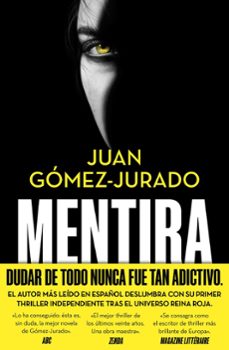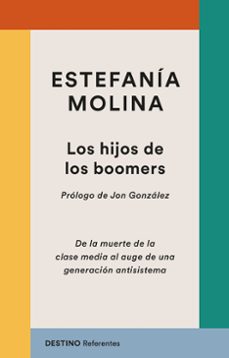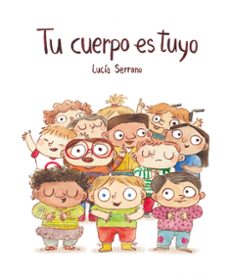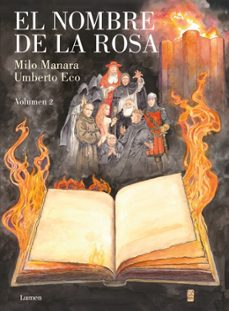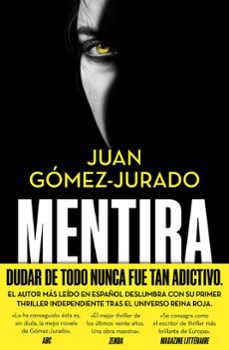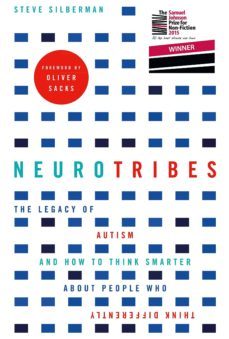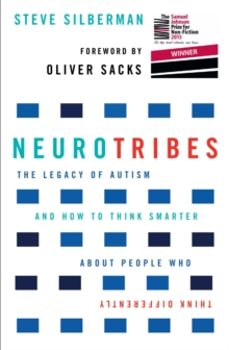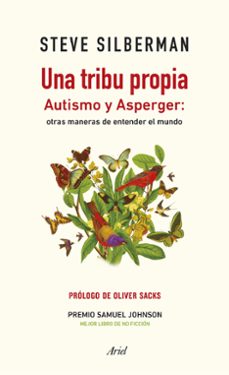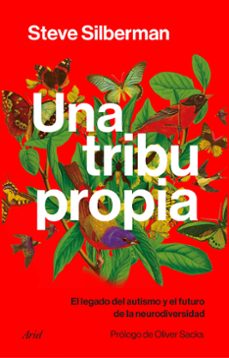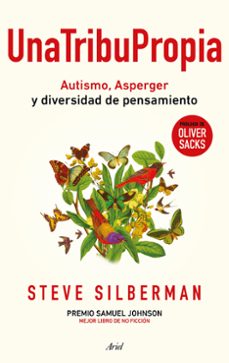Imprescindibles
Más vendidos Libros más leídos eBooks más leídos Todos los libros Todos los libros Autores destacados Series y sagas
Recomendados Libros recomendados Autores destacados Libros que inspiran Vidas con historia LGTBIQ+ English books
Ficción
Literatura Contemporánea Estudios literarios Clásicos Cuentos Poesía Teatro Libros de bolsillo Sagas literarias
Géneros literarios Novela romántica y erótica Novela negra Novela histórica Narrativa fantástica Novela de ciencia ficción Novela de terror Narrativa de humor Narrativa de viajes
No Ficción
Ciencias y tecnología Biología Ciencias Ciencias naturales Divulgación científica Informática Ingeniería Matemáticas Medicina Salud y dietas Formación Idiomas Estilo de vida Libros de Cocina Guías de viaje Narrativa de viajes Deportes Libros de Juegos Manualidades
Humanidades Autoayuda y espiritualidad Ciencias humanas Derecho Economía y Empresa Psicología y Pedagogía Filosofía Sociología Filología Biblioteconomía Estudios filológicos Estudios lingüísticos Estudios literarios Historia y crítica de la Literatura
Infantil
Juvenil
#Jóvenes lectores Narrativa juvenil Clásicos adaptados Libros Wattpad Libros Booktok Libros de influencers Libros de Youtubers Libros Spicy Juveniles Libros LGTBIQ+ Temas sociales Libros ciencia ficción Libros de acción y aventura Cómic y Manga Juvenil Cómic Juvenil Manga Shonen Manga Shojo Autores destacados Jennifer L. Armentrout Eloy Moreno Nerea Llanes Hannah Nicole Maehrer
Libros de fantasía Cozy Fantasy Dark academia Hadas y Fae Romantasy Royal Fantasy Urban Fantasy Vampiros y hombres lobo Otros Misterio y terror Cozy mistery Policiaca Spooky Terror Thriller y suspense Otros
Libros románticos y de amor Dark Romance Clean Romance Cowboy Romance Mafia y amor Romance dramatico Romcom Sport Romance Otros Clichés Enemies to Lovers Friends to Lovers Hermanastros Slow Burn Fake Dating Triángulo amoroso
Cómic y Manga
Novela gráfica Novela gráfica americana Novela gráfica europea Novela gráfica de otros países Personajes, series y sagas Series y sagas Star Wars Superhéroes Cómics DC Cómics Marvel Cómics otros superhéroes Cómics Valiant
Books in English
Books in English Fiction Non Fiction Comic Teen & Young Adult Main Authors Ken Follett Agatha Christie Stephen King Jane Austen Maggie O’Farrell On sale
Books in English for Young Adults Age 13+ Age 15+ Young Adult Authors Rebecca Yarros Sarah J. Maas Brandon Sanderson Ali Hazelwood Alice Oseman
Audiolibros
Literatura Contemporánea Narrativa fantástica Novela de ciencia ficción Novela de terror Novela histórica Novela negra Novela romántica y erótica Historia Historia universal
Humanidades Autoayuda y espiritualidad Ciencias humanas Economía y empresa Psicología y pedagogía Filosofía Infantil Audiolibros infantiles
Ciencia y tecnología Ciencias naturales Divulgación científica Medicina Salud y dietas Arte Cine Música Historia del arte
eBooks
Literatura Contemporánea Narrativa fantástica Novela de ciencia ficción Novela de terror Novela histórica Novela negra Novela romántica y erótica Juvenil Más de 13 años Más de 15 años Infantil eBooks infantiles
Humanidades Autoayuda y espiritualidad Ciencias humanas Economía y Empresa Psicología y Pedagogía Filosofía Historia Historia de España Historia Universal Arte Cine Música Historia del arte
Ciencia y tecnología Ciencias naturales Divulgación científica Medicina Salud y dietas Filología Estudios lingüísticos Estudios literarios Historia y crítica de la Literatura Estilo de vida Cocina Guías de viaje Ocio y deportes
Steve Silberman
Steve Silberman es editor de la revista Wired. Tras sus estudios de Psicología, empezó escribiendo sobre la generación Beat, y en especial sobre Allen Ginsberg, del que fue profesor asistente en la Universidad de Naropa. Ganó un premio de periodismo científico por un reportaje sobre el impacto de los placebo en la industria farmacéutica y con Una tribu propia, su primer libro, ha logrado alzarse con el premio Samuel Johnson, así como con el reconocimiento de toda la crítica literaria y científica. En 2011, la revista Time eligió su cuenta de Twitter como la referencia obligada en el campo de la ciencia y la medicina, catalogándolo de «el Kevin Bacon del periodismo científico».
Recibe novedades de Steve Silberman directamente en tu email
Filtros
Del 1 al 6 de 6
ATLANTIC BOOKS 9781760113636
Winner of the 2015 Samuel Johnson Prize for non-fictionA New York Times bestsellerForeword by Oliver SacksWhat is autism: a devastating developmental condition, a lifelong disability, or a naturally occurring form of cognitive difference akin to certain forms of genius? In truth, it is all of these things and more - and the future of our society depends on our understanding it.Following on from his groundbreaking article ''The Geek Syndrome'', Wired reporter Steve Silberman unearths the secret history of autism, long suppressed by the same clinicians who became famous for discovering it, and finds surprising answers to the crucial question of why the number of diagnoses has soared in recent years.Going back to the earliest autism research and chronicling the brave and lonely journey of autistic people and their families through the decades, Silberman provides long-sought solutions to the autism puzzle while casting light on the growing movement of ''neurodiversity'' and mapping out a path towards a more humane world for people with learning differences.
Ver más
Tapa blanda
Allen & Unwin 9781925575507
Winner of the Samuel Johnson Prize for Non-FictionShortlisted for the Wellcome Book PrizeShortlisted for the MJA Health Book of the Year AwardShortlisted for the BMA Medical Book AwardsA Sunday Times and New York Times bestsellerForeword by Oliver SacksWhat is autism: a devastating developmental condition, a lifelong disability, or a naturally occurring form of cognitive difference akin to certain forms of genius? In truth, it is all of these things and more - and the future of our society depends on our understanding it. Following on from his groundbreaking article The Geek Syndrome, Wired reporter Steve Silberman unearths the secret history of autism, long suppressed by the same clinicians who became famous for discovering it, and finds surprising answers to the crucial question of why the number of diagnoses has soared in recent years.Going back to the earliest autism research and chronicling the brave and lonely journey of autistic people and their families through the decades, Silberman provides long-sought solutions to the autism puzzle while casting light on the growing movement of neurodiversity and mapping out a path towards a more humane world for people with learning differences.
Ver más
eBook
ATLANTIC BOOKS 9781760113643
Winner of the 2015 Samuel Johnson Prize for Non Fiction Shortlisted for the Wellcome Book Prize A Sunday Times and New York Times bestseller Foreword by Oliver Sacks What is autism a devastating developmental condition a lifelong disability or a naturally occurring form of cognitive difference akin to certain forms of genius In truth it is all of these things and more and the future of our society depends on our understanding it Following on from his groundbreaking article The Geek Syndrome Wired reporter Steve Silberman unearths the secret history of autism long suppressed by the same clinicians who became famous for discovering it and finds surprising answers to the crucial question of why the number of diagnoses has soared in recent years Going back to the earliest autism research and chronicling the brave and lonely journey of autistic people and their families through the decades Silberman provides long sought solutions to the autism puzzle while casting light on the growing movement of neurodiversity and mapping out a path towards a more humane world for people with learning differences
Ver más
Tapa blanda
Editorial Ariel 9788434431515
Este libro muestra los amplios cambios registrados en el diagnóstico del autismo en el último siglo y demuestra cómo los nocivos estereotipos asociados a las personas autistas impiden que nuestra cultura alcance todo su potencial. Este apasionante relato revela tambien el concepto de neurodiversidad, la idea de que las diferencias neurologicas como el autismo, la dislexia y el TDAH no son errores de la naturaleza, sino el resultado de variaciones naturales en el genoma humano. Cuando entendamos que estas variaciones pueden dotar de unas habilidades y aptitudes extraordinarias, podremos dar un giro cultural que reconozca y celebre una gama mas amplia de formas de inteligencia humana.
Ver más
Tapa blanda
Editorial Ariel 9788434440388
A través de una narrativa elocuente y un estudio tan riguroso como cautivador, Silberman nos guía a través de los casos y las figuras principales de la historia del autismo. Hoy en día conocemos una
Ver más
Tapa blanda
Editorial Ariel 9788434423985
¿Qué es el autismo? O más importante aún, ¿podemos aislar y eliminar el gen del autismo sin acabar con los genios? El periodista Steve Silberman trabajaba hace una década en una serie de entrevistas sobre los grandes genios de Silicon Valley cuando cayo en la cuenta de que muchos de ellos tenian hijos autistas. Siguio investigando y recopilando las informaciones que ahora presenta en esta obra que da cuenta del hallazgo y evolucion del trastorno, pero tambien de las implicaciones sociales y politicas que ha tenido su tratamiento y estudio.Porque esas dos ideas que definen a los autistas, bien como genios con unas habilidades unicas, bien como las victimas de un trastorno con discapacidades severas, no solo perdura, sino que esta en el origen mismo de su diagnostico. Leo Kanner, en Estados Unidos, y Hans Asperger, en la Viena ocupada, fueron dos medicos que en los años cuarenta trabajaron de forma simultanea con pacientes afectados. La segunda guerra mundial mantendria ocultos durante decadas los estudios de Asperger y se impondria asi la vision pesimista de Kanner, que consideraba al autismo como una grave dolencia de origen psiquico, estigmatizando y martirizando con ello a los pacientes y a sus familias.Sin embargo, hoy sabemos que el autismo es la constatacion de nuestra neurodiversidad y que ha sido un factor determinante en la historia de la humanidad para el progreso cientifico e intelectual. Como bien apunta Silberman en su libro, es el momento de romper con la vision convencional que se tiene del autismo y de buscar, a traves del respeto, el apoyo y la tecnologia, nuevas maneras de integrar en la sociedad a aquellos con diferencias cognitivas.
Ver más
Tapa dura
Del 1 al 6 de 6

